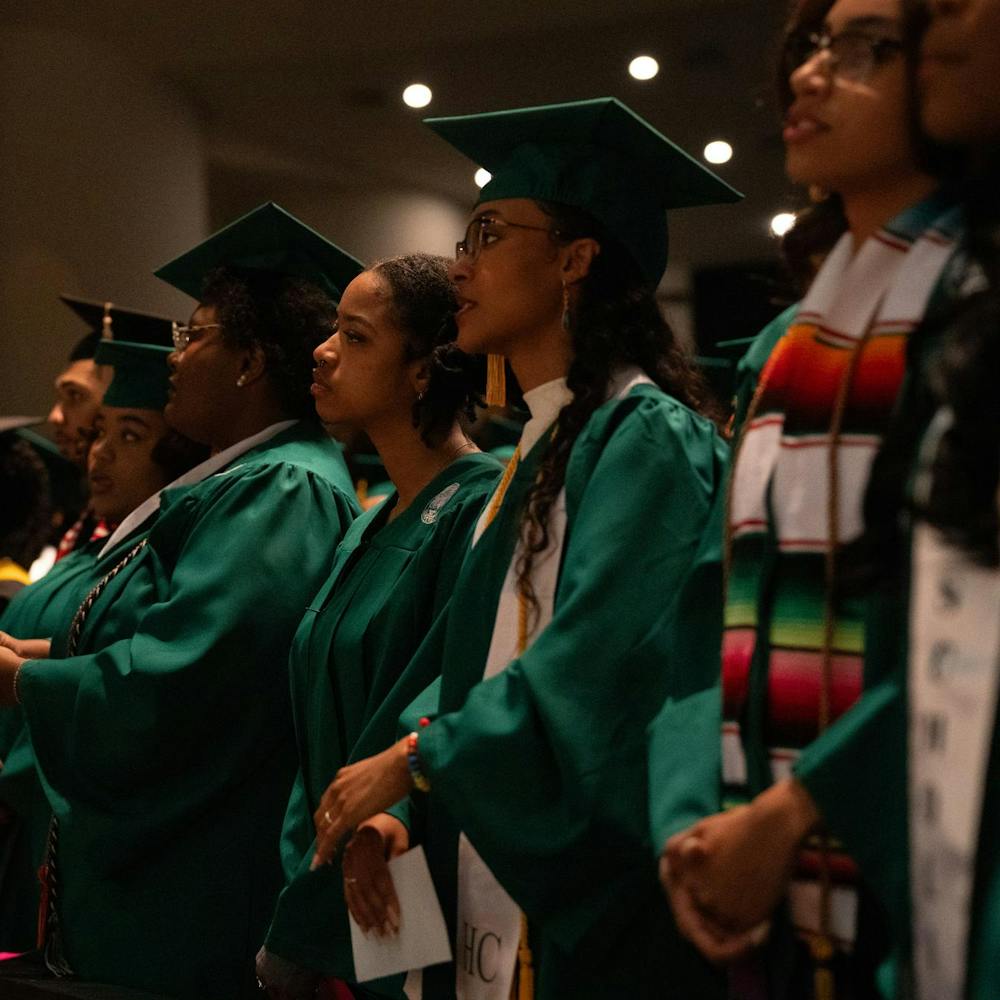Many people can recall memories of Sept. 11 as crystal clear. For the longest time, I thought I could, too. It wasn’t until I wrote about my experience during freshman year that I realized I couldn’t.
While looking over the draft of my assignment, a professor pointed out it was full of contradictions and holes in the storyline. I had rightfully identified that day as an important event in my life, but my draft showed I had yet to fully comprehend its consequences.
There are some things I can remember with certainty. I was in sixth grade when the twin towers were attacked. I was unaware of what happened until right before my class was dismissed to the school cafeteria. The speculations of sixth grade boys at a lunch table yielded little credible insight. All I understood was what was before me: two giant towers in New York City that had been hit by two planes on the cafeteria television screens.
I can’t remember what happened for the rest of the school day. I can’t remember if an 8th grader really tried to grab my turban or if it was a nightmare I had in the weeks following the attack. I can’t remember whether it took a few days or a few weeks before I realized my life was about to change permanently. I just remember being shocked and confused.
For those who don’t know, my religion is called Sikhism. It is a great, modern religion that believes in equality, working hard and remembering God’s name. Sikhism is not a branch of Hinduism or Islam; it is a separate and unique faith. Distinctly, it is a requirement for Sikh men to tie turbans and keep uncut beards. Sikh women are required to keep uncut hair while having the choice of wearing a turban. Of the turbans you see in the U.S., I bet 99 percent of those are Sikhs.
Many people mistakenly thought of Sikhs as Muslims in the aftermath of the attacks. Such ignorance was premised in the idea that Islam equated terrorism. I found myself having to explain to people I knew and strangers on the street that these were lies perpetuated in the media.
Sept. 11 also caused me great personal reflection. I wasn’t particularly religious when I was 11 years old, yet I was forced to choose if tying a turban was worth the discrimination I knew existed. It was hard because I had never felt uncomfortable about my faith. I was fortunate to have family, friends, teachers and role models of all faiths help me make the right choices.
Once I started my draft over again, that’s what I wrote about in my writing assignment.
Ten years later, all Americans continue the challenge of coping with consequences of that terrible September morning. We remember losing a sense of security and rightfully asked how our government was working to keep us safe. It’s been discussed how our intelligence community and policy makers have made incredible progress in crafting effective counterterrorism and counterinsurgency strategies to do just that.
But beyond the techniques used to combat terrorism, the commentary in years past has focused on the unity that was seen in the days that followed the attacks. It’s true most of us stopped to remember the fallen. I remember going to my Gurdwara — a Sikh place of worship — for a candlelight vigil to honor the victims, firefighters and emergency responders lost in the tragedy.
But there also was ugly division as well. There were too many Sikhs who were harassed and killed in the aftermath of the attacks. I remember being shocked reading emails from Sikh civil rights organizations with the stories of Sikhs who had been victim to hate crimes. There were a lot of young boys and girls with long hair feeling afraid for their safety when they shouldn’t have had to. It was enough to make me so shaken up that I still can’t remember exactly how it all happened.
I didn’t write this article with spite toward our great country. I wrote this because the Sikh perspective to Sept. 11 rarely is told by the media. Part of the progress made in the last decade was improving religious tolerance in America. I wrote this article because that task remains unfinished. Sikhs are just as much intertwined in the American fabric as any other religious community, and our story of struggle and triumph deserves to be told.
Part of growing up is learning to stand for what you believe in, learning who your real friends are and deciding what kind of person you want to be. I didn’t understand all of that in sixth grade. But growing up in the decade after Sept. 11 taught me that, and I will never forget it.
Ameek Singh is a State News guest columnist and international relations and political theory and constitutional democracy senior. Reach him at sodhiame@msu.edu.
Support student media!
Please consider donating to The State News and help fund the future of journalism.
Discussion
Share and discuss “American Sikh’s 9/11 perspective” on social media.






